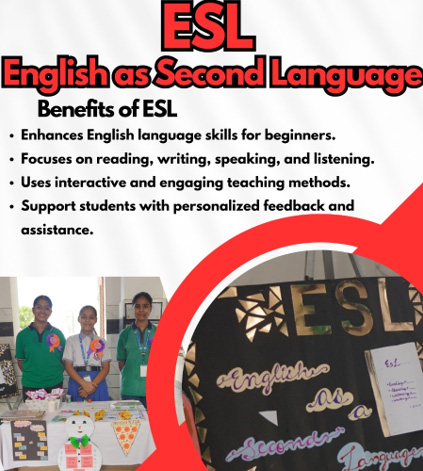1. Introduction
The Student Support Program (SSP) is a targeted academic program in career academy senior secondary school designed to support students who are struggling with foundational concepts in core subjects. The program aims to bridge learning gaps and ensure that all students achieve minimum learning levels appropriate to their grade.
2. Objectives
• To identify students with academic gaps and provide focused academic support.
• To strengthen the foundational concepts of students in core subjects like Mathematics, English, Science, and Social Science.
• To allot dedicated teachers who will work closely with selected students during specified hours.
• To provide a customized assessment format (Set-C) during periodic tests aligned with their current academic level.
• To encourage continuous improvement through regular interventions and monitoring of progress.
• To enhance parental involvement via regular Parent-Teacher Meetings (PTMs) and updates.
3. Target Group
• Students from Classes III to VIII identified through academic performance, class assessments, and teacher observations as needing extra academic support.
4. Program Design
* Identification of Students
• Initial screening through class assessments and teacher recommendations.
• Periodic reviews to include or graduate students based on progress.
*Dedicated Academic Support
• Separate teachers or subject experts will be allotted to SSP groups.
• Teachers will provide focused remedial teaching, using simplified materials and engaging methods.
• Teaching will focus on clearing basic concepts, regular revision, and practice.
* Customized Assessments (Set-C)
• During school periodic assessments, SSP students will be given a separate Set-C question paper.
• Set-C will be designed to assess students’ understanding of foundational concepts with simplified questions.
* Monitoring and Feedback
• Weekly and monthly tracking of student performance.
• Maintenance of individual progress records.
• Feedback sessions with students for motivation and academic planning.
* Parent-Teacher Meetings (PTMs)
• Regular PTMs will be conducted to update parents about their child’s performance.
• Guidance will be provided on how parents can support learning at home.
Review and Evaluation
• The program will be reviewed quarterly to evaluate its effectiveness.
• Necessary changes in teaching methods, materials, and scheduling will be made based on the review.
It is a Free Program under SSP (Student Support Program)
This program focuses on developing the students' ability to understand, speak, read, and write in English, with the goal of helping them succeed academically and socially.
There are VARIOUS Components in ESL
1. LISTENING
2. READING
3. WRITING
4. SPEAKING
5. PRONUNCIATION
6. GRAMMAR
7. VOCABULARY
OBJECTIVE
*It is a program for Class 3rdtoVIII
*It is a Special program where struggling students get individual attention in separate classroom in English Language.
* Builds Confidence in Language and helps in developing lifelong skills
*Special Classroom and Special Teacher will be allotted.
* Uses interactive and engaging teaching methods.
*Support students with personalized feedback and assistance.
*It enables English language learners to become competent in understanding-Listening, Reading, Writing &Speaking of the English language through the development of literacy and academic skills.
HOW IT WORKS
• There will be English Language EvaluationTest.
• TheTest aims to assess the effectiveness of student communication skills in four core areas: Reading, Listening, Writing, and Speaking.
• This evaluation helps identify strengths and areas for improvement across various grade levels, from Class 3rd to Class VIII, fostering the development of language proficiency.
ESL Proficiency Levels:
ESL programs are often organized into different proficiency levels:
• Beginner: For students with very limited English skills. (Level 1) (Below 40 %)
• Intermediate: For students who can understand basic English but still need support. (Level 2) (40-50%)
• Advanced: For students who have a good command of English but still need practice for fluency and academic language. (Level 3)(50%)
Assessments:
• Students in ESL programs are regularly assessed to track their progress in acquiring English language skills. These assessments can include
• Oral tests, written assignments, reading comprehensiontests,listening comprehension, Spellingexercises.
• Students who are in ESL will get separate Question Paper of English with SET-C in which Teacher will add Mcqs, Fill ups, T/F One-line questions & Questions according to Students Level.
• All the Test Results (Class Test, Weekly Test, and MonthlyTest) should be informed to Parents through message or call & PTM should be conducted time to time.
Transition Support:
Once students have developed sufficient language skills, they may be transitioned into mainstream classrooms, where they can apply their English language skills in a broader academic setting.
In short, ESL programs are an essential part of helping non-native English-speaking students thrives in an English-speaking educational environment. These programs aim to bridge language gaps, providing students with the necessary support to succeed both in school and in their community.
Support Services:
• Personalized Attention: ESL programs offer additional support for students who need more individualized attention.
• Peer Support: Encouraging interaction with English-speaking peers who can help students practice conversational skills and integrate into the school community.
• Parent Involvement: ESL studentsalso need theirfamily support along with their teachers in English practice & in learning Literacy skills.


Please feel free to contact us anytime if you have any questions, concerns, or need assistance. Our team is always here to help and will be happy to assist you.
Enroll Now